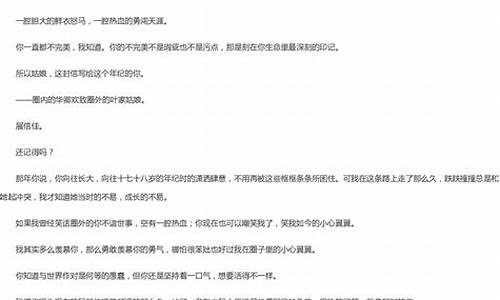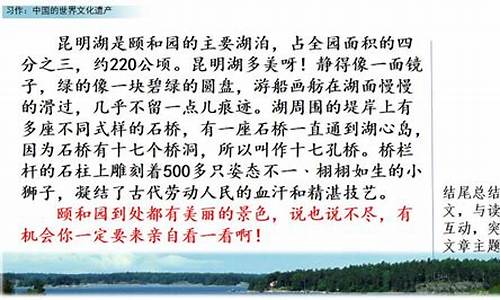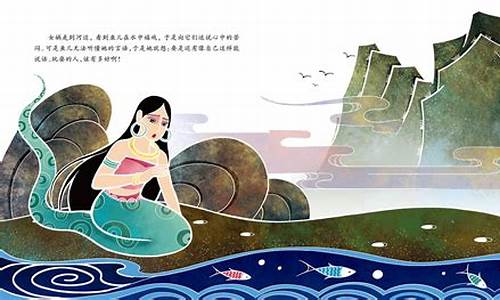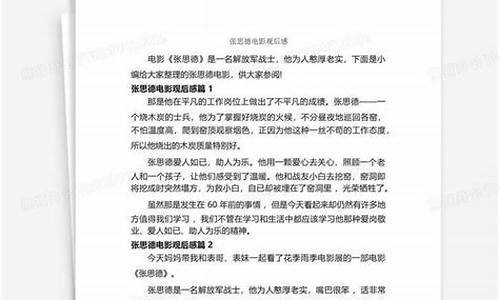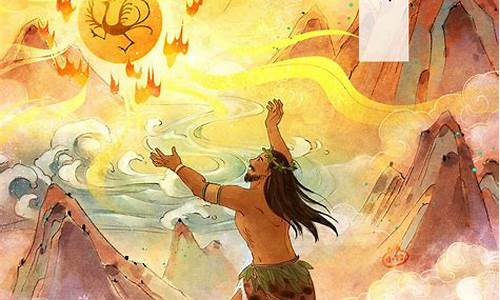关于孔子的作文英语小学_关于孔子的英语作文200字
关于孔子的作文英语小学一直是人们关注的焦点,而它的今日更新更是备受瞩目。今天,我将与大家分享关于关于孔子的作文英语小学的最新动态,希望能为大家提供一些有用的信息。
1.跪求一篇关于孔子的英语作文!大概80词左右!谢了各位大虾
2.求英语作文一篇,大一水平
3.急寻英文写作高手!!!有关孔子~
4.帮忙写篇英语作文,不要网上搜的。字数100词左右。内容要求见问题补充……谢了
5.写一篇简要介绍孔子故乡曲阜的英语作文
6.写一篇简要介绍孔子故乡曲阜的英语作文 包括近来经济的发展
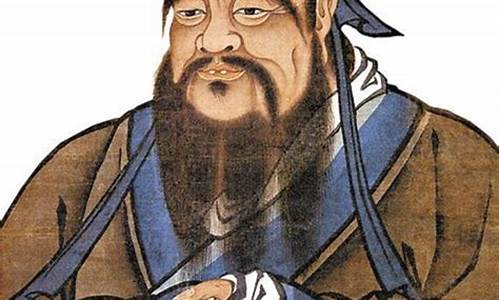
跪求一篇关于孔子的英语作文!大概80词左右!谢了各位大虾
Ancient China was a place where states were often at war with each other.But it was also a time when there were many great philosophers.
Confucius(551BC-479BC)is the philosopher whose influence has been the greatest.He stressed the importance of kindness,duty and order in society.Chinese society was influenced by these ideas for more than 2,000 years.
求英语作文一篇,大一水平
Confuius's given name is Qiu, also styled Zhongni. He was born in QuFu, China, 551 B.C., and died in 479 B.C..
Confucius founded confuciansism--the famous philosophical school in the history of China. The kernel of his thought is Ren(benevolence), its form of expression is Li(the Rites).
Confucius travlled from one state to another preaching his doctrines until he was old. He spent his last years in compiling and editing. His works include Book of Spring and Autumn, Book of Odes, Book of History, Book of Rites, Book of Music and Book of change. These six books regarded as the classical works of Confucianism have been handed down to the present time. He founded the first private school in Chinese history. He was the teacher of 3,000 disciples among whom 72 were Sages. His major sayings were written down in Lun Yu (The Analects), one of the Four Books.
Confucius lived in the late Spring and Autumn period(770-476 B.C). In his last years he lived in relative poverty and no longer enjoyed great fame. But after his death, his thought continued to influence the Chinese people for over 2,500 years. His doctrine on morality and ethics has had a great effect on their ideology, strenthening the unity of the nation and making it known to the world for its courteous dealing and solemn rites.
Confucius said, "Let there be three men walking together: from the nmuber I should be sure to find my instructor." "To make accomplishment you must help others to be accomplished too." "Never be satiated with you knowledge and never be tired of teaching."... Today, these philosophical sayings are still shining brilliantly.
In the long span of the Chinese history, the descendants of the Yellow Emperor have been righteously proud of the existence of the outstanding Confucius.
急寻英文写作高手!!!有关孔子~
刚写的,手打。如果满意请采纳
Good morning, ladies and gentlemen.
It’s my pleasure to have friends from afar. Welcome to Confucius hometown—Shandong Province. Please sit back and relax. Your luggage will be sent to the hotel by another bus, so you don’t have to worry about it.
Qufu is the hometown of Confucius, who is traditionally believed to have been born at the nearby Mount Ni. The city contains numerous historic palaces, temples and cemeteries. The three most famous cultural sites of the city, collectively known as San Kong "The Three Confucian ", are the Temple of Confucius, the Cemetery of Confucius, and the Kong Family Mansion. Together, these three sites have been listed as a UNESCO World Heritage Site since 1994.
I hope everyone will have a good time in Qufu! Thank you!
女士们先生们,早上好!
有朋自远方来,不亦乐乎!欢迎大家来到孔子故里---曲阜。请大家坐好,您的行李将由另一台巴士送至宾馆,请大家不要担心。
曲阜是孔子的故乡,传说孔子生于尼山。曲阜市有中国历史名胜,包括宫殿,庙宇和古墓。今天我们要游览的是三个最著名的文化景点,就是著名的三孔---孔庙,孔林和孔府。三孔在1994年被列入联合国教科文组织世界文化遗址名录。
我祝愿每个人在曲阜都能玩得开心,谢谢大家!
帮忙写篇英语作文,不要网上搜的。字数100词左右。内容要求见问题补充……谢了
很多自己摘录些吧
His ancestry is unknown and was largely self-educated according to the history. Later became a teacher, philosopher and political theorist, but was unable to gain a worthwhile position where he could put his theories into practice and, after years of traveling, returned home to continue teaching until his death at the age of 72. Although during his lifetime he had little influence outside his own band of disciples, Confucianism has been the dominant philosophical system in China for over 2000 years
1.Confucius' Social Philosophy
Confucius' teachings and his conversations and exchanges with his disciples are recorded in the Lunyu or Analects, a collection that probably achieved something like its present form around the second century BCE. While Confucius believes that people live their lives within parameters firmly established by Heaven—which, often, for him means both a purposeful Supreme Being as well as ‘nature’ and its fixed cycles and patterns—he argues that men are responsible for their actions and especially for their treatment of others. We can do little or nothing to alter our fated span of existence but we determine what we accomplish and what we are remembered for.
Confucius represented his teachings as lessons transmitted from antiquity. He claimed that he was “a transmitter and not a maker” and that all he did reflected his “reliance on and love for the ancients.” (Lunyu 7.1) Confucius pointed especially to the precedents established during the height of the royal Zhou (roughly the first half of the first millennium, BCE). Such justifications for one's ideas may have already been conventional in Confucius' day. Certainly his claim that there were antique precedents for his ideology had a tremendous influence on subsequent thinkers many of whom imitated these gestures. But we should not regard the contents of the Analects as consisting of old ideas. Much of what Confucius taught appears to have been original to him and to have represented a radical departure from the ideas and practices of his day.
Confucius also claimed that he enjoyed a special and privileged relationship with Heaven and that, by the age of fifty, he had come to understand what Heaven had mandated for him and for mankind. (Lunyu 2.4). Confucius was also careful to instruct his followers that they should never neglect the offerings due Heaven. (Lunyu 3.13) Some scholars have seen a contradiction between Confucius' reverence for Heaven and what they believe to be his skepticism with regard to the existence of ‘the spirits.’ But the Analects passages that reveal Confucius's attitudes toward spiritual forces (Lunyu 3.12, 6.20, and 11.11) do not suggest that he was skeptical. Rather they show that Confucius revered and respected the spirits, thought that they should be worshipped with utmost sincerity, and taught that serving the spirits was a far more difficult and complicated matter than serving mere mortals.
Confucius' social philosophy largely revolves around the concept of ren, “compassion” or “loving others.” Cultivating or practicing such concern for others involved deprecating oneself. This meant being sure to avoid artful speech or an ingratiating manner that would create a false impression and lead to self-aggrandizement. (Lunyu 1.3) Those who have cultivated ren are, on the contrary, “simple in manner and slow of speech.” (Lunyu 13.27). For Confucius, such concern for others is demonstrated through the practice of forms of the Golden Rule: “What you do not wish for yourself, do not do to others;” “Since you yourself desire standing then help others achieve it, since you yourself desire success then help others attain it.” (Lunyu 12.2, 6.30). He regards devotion to parents and older siblings as the most basic form of promoting the interests of others before one's own and teaches that such altruism can be accomplished only by those who have learned self-discipline.
Learning self-restraint involves studying and mastering li, the ritual forms and rules of propriety through which one expresses respect for superiors and enacts his role in society in such a way that he himself is worthy of respect and admiration. A concern for propriety should inform everything that one says and does:
Look at nothing in defiance of ritual, listen to nothing in defiance of ritual, speak of nothing in defiance or ritual, never stir hand or foot in defiance of ritual. (Lunyu 12.1)
Subjecting oneself to ritual does not, however, mean suppressing one's desires but instead learning how to reconcile one's own desires with the needs of one's family and community. Confucius and many of his followers teach that it is by experiencing desires that we learn the value of social strictures that make an ordered society possible (See Lunyu 2.4.). Nor does Confucius' emphasis on ritual mean that he was a punctilious ceremonialist who thought that the rites of worship and of social exchange had to be practiced correctly at all costs. Confucius taught, on the contrary, that if one did not possess a keen sense of the well-being and interests of others his ceremonial manners signified nothing. (Lunyu 3.3). Equally important was Confucius' insistence that the rites not be regarded as mere forms, but that they be practiced with complete devotion and sincerity. “He [i.e., Confucius] sacrificed to the dead as if they were present. He sacrificed to the spirits as if the spirits were present. The Master said, ‘I consider my not being present at the sacrifice as though there were no sacrifice.’” (Lunyu 3.12)
While ritual forms often have to do with the more narrow relations of family and clan, ren, however, is to be practiced broadly and informs one's interactions with all people. Confucius warns those in power that they should not oppress or take for granted even the lowliest of their subjects. “You may rob the Three Armies of their commander, but you cannot deprive the humblest peasant of his opinion.” (Lunyu 9.26) Confucius regards loving others as a calling and a mission for which one should be ready to die (Lunyu 15.9).
2. Confucius' Political Philosophy
Confucius' political philosophy is also rooted in his belief that a ruler should learn self-discipline, should govern his subjects by his own example, and should treat them with love and concern. “If the people be led by laws, and uniformity among them be sought by punishments, they will try to escape punishment and have no sense of shame. If they are led by virtue, and uniformity sought among them through the practice of ritual propriety, they will possess a sense of shame and come to you of their own accord.” (Lunyu 2.3; see also 13.6.) It seems apparent that in his own day, however, advocates of more legalistic methods were winning a large following among the ruling elite. Thus Confucius' warning about the ill consequences of promulgating law codes should not be interpreted as an attempt to prevent their adoption but instead as his lament that his ideas about the moral suasion of the ruler were not proving popular.
Most troubling to Confucius was his perception that the political institutions of his day had completely broken down. He attributed this collapse to the fact that those who wielded power as well as those who occupied subordinate positions did so by making claim to titles for which they were not worthy. When asked by a ruler of the large state of Qi, Lu's neighbor on the Shandong peninsula, about the principles of good government, Confucius is reported to have replied: “Good government consists in the ruler being a ruler, the minister being a minister, the father being a father, and the son being a son.” (Lunyu 12.11) If I claim for myself a title and attempt to participate in the various hierarchical relationships to which I would be entitled by virtue of that title, then I should live up to the meaning of the title that I claim for myself. Confucius' analysis of the lack of connection between actualities and their names and the need to correct such circumstances is usually referred to as Confucius' theory of zhengming. Elsewhere in the Analects, Confucius says to his disciple Zilu that the first thing he would do in undertaking the administration of a state is zhengming. (Lunyu 13.3). Xunzi composed an entire essay entitled Zhengming. But for Xunzi the term referred to the proper use of language and how one should go about inventing new terms that were suitable to the age. For Confucius, zhengming does not seem to refer to the ‘rectification of names’ (this is the way the term is most often translated by scholars of the Analects), but instead to rectifying behavior of people so that it exactly corresponds to the language with which they identify and describe themselves. Confucius believed that this sort of rectification had to begin at the very top of the government, because it was at the top that the discrepancy between names and actualities had originated. If the ruler's behavior is rectified then the people beneath him will follow suit. In a conversation with Ji Kangzi (who had usurped power in Lu), Confucius advised: “If your desire is for good, the people will be good. The moral character of the ruler is the wind; the moral character of those beneath him is the grass. When the wind blows, the grass bends.” (Lunyu 12.19)
For Confucius, what characterized superior rulership was the possession of de or ‘virtue.’ Conceived of as a kind of moral power that allows one to win a following without recourse to physical force, such ‘virtue’ also enabled the ruler to maintain good order in his state without troubling himself and by relying on loyal and effective deputies. Confucius claimed that, “He who governs by means of his virtue is, to use an analogy, like the pole-star: it remains in its place while all the lesser stars do homage to it.” (Lunyu 2.1) The way to maintain and cultivate such royal ‘virtue’ was through the practice and enactment of li or ‘rituals’—the ceremonies that defined and punctuated the lives of the ancient Chinese aristocracy. These ceremonies encompassed: the sacrificial rites performed at ancestral temples to express humility and thankfulness; the ceremonies of enfeoffment, toasting, and gift exchange that bound together the aristocracy into a complex web of obligation and indebtedness; and the acts of politeness and decorum—such things as bowing and yielding—that identified their performers as gentlemen. In an influential study, Herbert Fingarette argues that the performance of these various ceremonies, when done correctly and sincerely, involves a ‘magical’ quality that underlies the efficacy of royal ‘virtue’ in accomplishing the aims of the ruler.
3. Confucius and Education
A hallmark of Confucius' thought is his emphasis on education and study. He disparages those who have faith in natural understanding or intuition and argues that the only real understanding of a subject comes from long and careful study. Study, for Confucius, means finding a good teacher and imitating his words and deeds. A good teacher is someone older who is familiar with the ways of the past and the practices of the ancients. (See Lunyu 7.22) While he sometimes warns against excessive reflection and meditation, Confucius' position appears to be a middle course between studying and reflecting on what one has learned. “He who learns but does not think is lost. He who thinks but does not learn is in great danger.” (Lunyu 2.15) Confucius, himself, is credited by the tradition with having taught altogether three thousand students, though only seventy are said to have truly mastered the arts he cherished. Confucius is willing to teach anyone, whatever their social standing, as long as they are eager and tireless. He taught his students morality, proper speech, government, and the refined arts. While he also emphasizes the “Six Arts” -- ritual, music, archery, chariot-riding, calligraphy, and computation -- it is clear that he regards morality the most important subject. Confucius' pedagogical methods are striking. He never discourses at length on a subject. Instead he poses questions, cites passages from the classics, or uses apt analogies, and waits for his students to arrive at the right answers. “I only instruct the eager and enlighten the fervent. If I hold up one corner and a student cannot come back to me with the other three, I do not go on with the lesson.” (Lunyu 7.8).
Confucius' goal is to create gentlemen who carry themselves with grace, speak correctly, and demonstrate integrity in all things. His strong dislike of the sycophantic “petty men,” whose clever talk and pretentious manner win them an audience, is reflected in numerous Lunyu passages. Confucius finds himself in an age in which values are out of joint. Actions and behavior no longer correspond to the labels originally attached to them. “Rulers do not rule and subjects do not serve,” he observes. (Lunyu 12.11; cf. also 13.3) This means that words and titles no longer mean what they once did. Moral education is important to Confucius because it is the means by which one can rectify this situation and restore meaning to language and values to society. He believes that the most important lessons for obtaining such a moral education are to be found in the canonical Book of Songs, because many of its poems are both beautiful and good. Thus Confucius places the text first in his curriculum and frequently quotes and explains its lines of verse. For this reason, the Lunyu is also an important source for Confucius' understanding of the role poetry and art more generally play in the moral education of gentlemen as well as in the reformation of society.
写一篇简要介绍孔子故乡曲阜的英语作文
Confucian school of thought is one of the classics, by the disciples of Confucius and his disciples compiled from longer. It quotations and dialogue-oriented style, recording the words and deeds of Confucius and his disciples, which embodies the political ideas of Confucius, ethical thinking, moral values and educational principles. "The Analects of Confucius," a total of 20. Simple and concise language of the Analects of Confucius, the meaning of deep, many of which are still the world of speech as to the rationale.
是儒家学派的经典著作之一,由孔子的弟子及其再传弟子编撰而成。它以语录体和对话文体为主,记录了孔子及其弟子言行,集中体现了孔子的政治主张、伦理思想、道德观念及教育原则等。通行本《论语》共二十篇。论语的语言简洁精练,含义深刻,其中有许多言论至今仍被世人视为至理。
写一篇简要介绍孔子故乡曲阜的英语作文 包括近来经济的发展
As we all know,Confucius was a one of the greatest men in china .So his hometown Qufu is aiso famous all over the world.
Qufu lies in the soustwest Shandong province .It served as the capital of the Spring and autunm period. So it has a long history.Qu-fu is not only famous for Confucius but also some historic place. The-re are too many ancient building,and they are worth visiting there years,too many people visiting Qufu,and it can develop the local econrmy.
We should go to Qufu because it can help us know more and more about history and Confucianism.
As we all know,Confucius was a one of the greatest men in china .So his hometown Qufu is aiso famous all over the world.Qufu lies in the soustwest Shandong province .It served as the capital of the Sp...
好了,关于“关于孔子的作文英语小学”的讨论到此结束。希望大家能够更深入地了解“关于孔子的作文英语小学”,并从我的解答中获得一些启示。
声明:本站所有文章资源内容,如无特殊说明或标注,均为采集网络资源。如若本站内容侵犯了原著者的合法权益,可联系本站删除。

